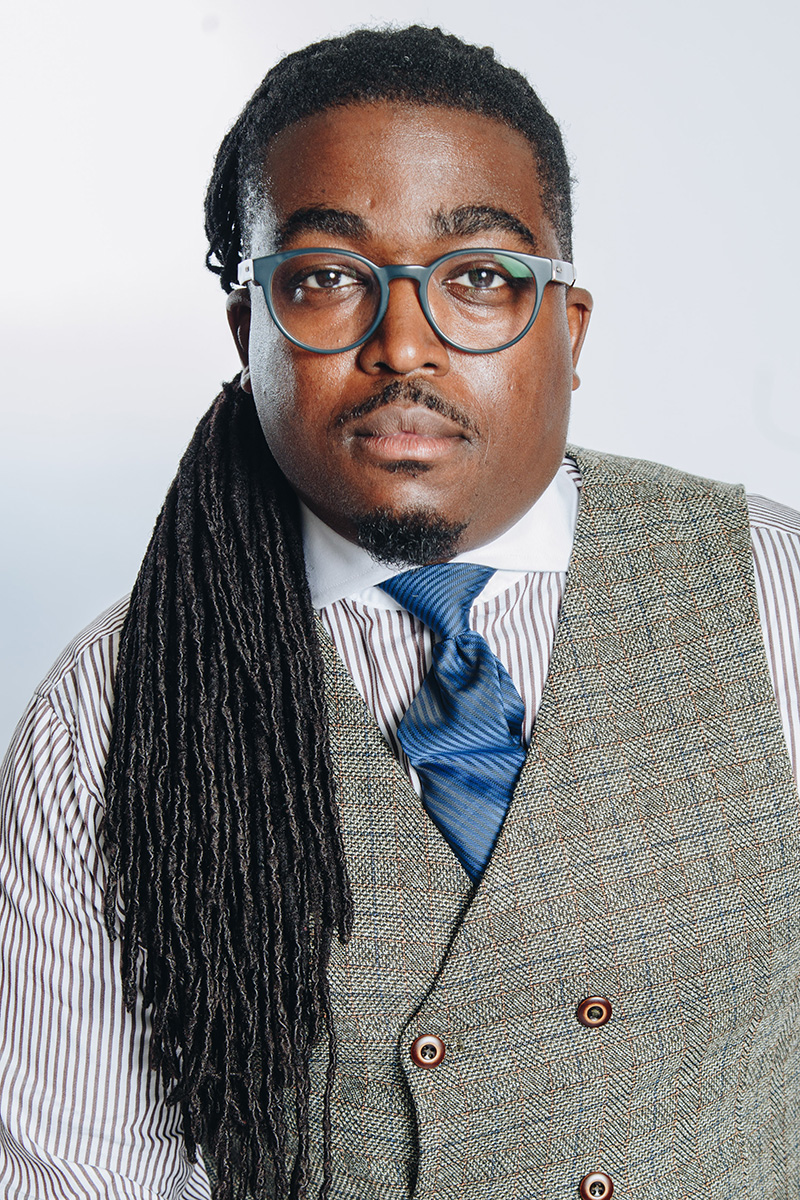Key points:
- Barna research shows that 15% of Black church attendees experienced direct loss as a result of COVID-19, compared to 7% of white church attendees during the same period.
- Black leaders and church members are experiencing high rates of depression, burnout and anxiety.
- The church must invest in the emotional health of its Black members.

Photo courtesy of the author.
Commentaries
I am a master at packing suitcases. I organize all my belongings ahead of time and, like playing Tetris, I fit each article of clothing into a designated spot.
In fact, some weeks ago, when an airport security agent opened one of my bags for inspection, she paused, looked at me and said, “Wow.”
I only travel with carry-on luggage, and I have perfected my craft so well I can get three suits, several pairs of shoes, my travel steamer and multiple other items into one carry-on suitcase. On the outside you may see a small bag, but inside it’s filled with so many items, each of them giving the bag additional weight and taking up limited space.
That’s sort of what is happening in Barna’s recent study, “Mental & Emotional Well-Being of Black Americans Before, During and After the COVID-19 Pandemic.”
The study was conducted from November 2019 to May 2021 as part of the Barna Group’s larger report, “Trends in the Black Church.” The report sheds light on the emotional and mental baggage Black leaders and churches are carrying today. What we discover through the study is unsettling but perhaps not completely unexpected.
As a Black leader of a mostly Black church, I can tell you that Black leaders and Black churches are carrying a lot and that those bags are close to bursting.
One of the first really interesting findings of the study was the sheer number of Black people in the Black church who are dealing with loss and grief as a direct result of someone they know having died from COVID-19. The study found that 15% of Black church attendees experienced direct loss as a result of COVID-19, compared to 7% of white church attendees during that same time.
This is significant in many ways. In thinking about how we engage with others, do we wear masks or not? Do we shake hands or embrace physically or not? Do we sit close or stay six feet apart? All those questions take on a much more dire and anxiety-producing reality when you consider that twice as many Black Americans have died than their white colleagues.
The conversation around COVID-19 mandates and decorum shifts from being just a health-centered conversation to now being a justice and equity-centered conversation, with an underlying question: “Is this fair to all?”
When asked about how often one feels burned out, 42% of Black respondents shared that they feel burned out at least once if not more a month; 52% said they feel stressed once or more a month; 39% said they feel depressed once or more a month; and 44% shared that they feel anxious once or more a month. If you were to use a Venn diagram to plot each of those responses, that would give you over 16 different regions for possible overlapping. Possible combinations could include Black church respondents feeling burned out and anxious, or stressed and depressed, etc.
Subscribe to our
e-newsletter
It is the intersecting and overlapping of these complex emotions that are most troubling to me. Our Black leaders and church members are carrying a lot of weight, with limited space and, according to Barna’s findings, the bag is breaking. When asked to rate their emotional stability, with zero being the least and 10 being the greatest, 46% of the respondents rated themselves at or below a 7 in terms of feeling emotionally stable. The bag is breaking.
My field of study and passion is trauma, grief and emotional health, but at my core, I am a preacher. Scripture provides an excellent framework for what to do for Black leaders and churches today. In 1 Samuel 30, we find a depressed, anxious, grief-stricken and burned-out David. He’d lost everyone and everything that was important to him and still was expected to lead.
I love this text because of verse 4. David and his men grieved. They wept until they had no breath left, and once they were done grieving, then David, in verse 6 of that same text, encourages himself.
Two factors appeared in that story that are relevant for embracing Black leaders and Black churches today: a space for grieving and a space for encouraging. We need a theological understanding of grief and trauma as well as a practical space for sharpening tools of encouragement, such as resilience practices, mindfulness training and bodywork.
There is a way forward, but it will require a strategic investment from the church in the emotional health of its Black members. It will require creating safe spaces for Black pastors and leaders to express their grief and trauma, as well as creating spaces for those same respondents to learn critical tools for resilience and encouragement.
Barna’s study was helpful in sounding the alarm for Black leaders and churches’ mental health. The question is: Will the church hear it and respond?
Bell is lead pastor of Camphor United Methodist Church in Saint Paul, Minnesota. His book, “The Four Promises: A Journey of Healing Past and Present Trauma,” is published by Space For Me LLC.
News contact: Joey Butler or Tim Tanton at (615) 742-5470 or newsdesk@umcom.org. To read more United Methodist news, subscribe to the free Daily or Friday (weekly) Digests.


